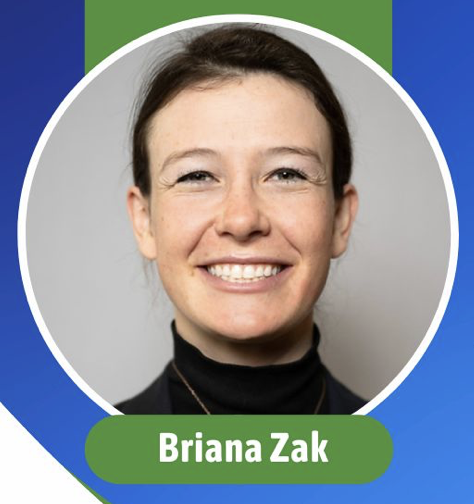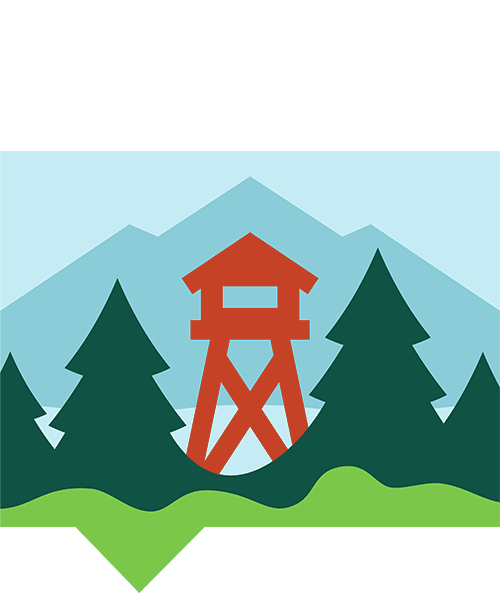For the first time, McCall is employing a staff member devoted exclusively to running the city’s housing program.
Earlier this month, the city announced the hiring of Bri Zak for the Housing Planner position, which the city had been trying to fill since early last year. Zak started the new role on June 9.
“We will be able to accomplish more, especially related to implementation of local housing work in McCall,” Community and Economic Development Director Michelle Groenevelt said of hiring Zak. “We did not have enough staff capacity to dedicate to this top priority of our community and city council.”
Zak will be responsible for overseeing all aspects of the city’s local housing program and implementing housing strategies outlined in the city’s 2022 housing plan. That work has previously been handled by Groenevelt, other planning staff, and consultants.
“We are currently working on her six-month work plan to prioritize her time,” Groenevelt said.
The program, which began in 2018, currently includes 16 units with deed restrictions for use only by local workers and senior citizens. Another 45 units are entitled but not yet built.
McCall roots, Blaine County experience
Zak was born and raised in McCall before graduating from McCall-Donnelly High School in 2014. Most recently, she worked as a consultant for the Blaine County Housing Authority, which serves the cities of Sun Valley, Ketchum, and Hailey.
Blaine County’s housing program is among the most established in the state, with more than 200 units signed onto the program since it was created in 2002. Zak told Valley Lookout she was involved in “almost every part” of the program.
“I helped them progress their programs, improve policy, rent and sell affordable homes, and manage the lease-up of a new 51-unit affordable housing building, Bluebird Village, in downtown Ketchum,” she said.
Zak wants to use her experiences in Blaine County, which profiles similarly to Valley County, to build on McCall’s existing housing program.
“One of the big things I learned in Blaine County is the power of bringing together diverse community groups to develop multiple solutions to provide safe, affordable, and sustainable housing,” she said.
In-house hire favored over housing authority
Zak was hired as a city staff member in lieu of the city starting the McCall Area Housing Authority, which was one of the top two recommendations in the 2022 housing plan.
Without donors like you, this story would not exist.
Make a donation of any size here
The city decided it would be more efficient to create a new staff position under Groenevelt rather than creating a new government entity that would result in additional management expenses, as Valley Lookout reported.
The housing authority was estimated to need $750,000 in seeding costs over its first three years, compared to Zak’s $91,998 starting salary as a full-time city employee.
Meanwhile, the city plans to tap into federal funding programs available only to housing authorities by partnering with the Southwestern Idaho Cooperative Housing Authority, which has been operating in McCall since 2007.

Deed restrictions
McCall’s housing program is currently centered on developer incentives for including deed-restricted local housing in new housing developments. The program was adopted by the city in 2019 and updated earlier this year to add new incentives.
The homes are available to local workers and retirees age 65 and up, but only if they have lived in the McCall area for at least 10 years.
Developers receive a $10,000 credit for each unit deed restricted for local occupancy, or a $20,000 credit for units that are deed restricted for local occupancy and affordability. The deed restrictions are permanent and remain with the unit regardless of ownership.
The credits are paid by the city through building fee waivers and public infrastructure cost offsets, like for sidewalks and city water connections.
The housing program could be expanded through strategies outlined in the 2022 housing plan that Zak is tasked with implementing.
Potential strategies include facilitating employer-provided housing, developing a program that converts short-term rentals into long-term rentals, and asking voters to approve a new tax to fund local housing.
The plan targets creating 50 new local housing units each year and ultimately hopes to raise the occupancy level of homes in McCall from 27% (as of 2022) to 40%, the city’s occupancy rate in 2010.





